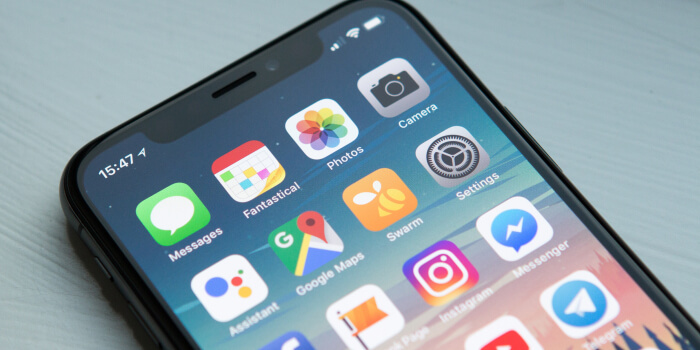Small businesses always find it a challenge to compete in the same space as bigger businesses. Larger companies can afford more for marketing, expansion and day-to-day operations, and often they also become the first consideration for purchasing decisions.
Fighting for mind-space with these larger brands becomes an every-day challenge that can take up valuable resources. Paid advertising is a tool that small businesses are always hesitant to use, but it isn’t something to put off as it can really help your business.
Paid advertising is a top marketing effort that with a little money can take your business a long way. It can generate an incredible amount of traffic, leading to revenue, and can also create a positive opinion of your brand.
So why else make the investment into paid advertising?
Add Credibility
Consumers may avoid a small business because of the human nature to resist trying something new. They are likely also suspicious of the quality of products and service in a brand they have never seen or heard of before. Investing in paid advertising can help alleviate these doubts and create a positive relationship with your brand.
The logic is simple; when people see a good advertisement, consumers deduce that the business has money to advertise. If the business has money for advertising, then it must be a good one. Ensuring your ad is high quality will capture attention and interest in your business.
Connect Strategically
Instead of waiting for your customers to find you (or stumble upon your business) paid advertising is a way to reach out directly to your customers. Everyone now begins their purchasing plans with an online search. Paid advertising is the easiest way to connect to your ideal consumers. While Google is one of the top ways to reach out to a larger audience, there are several other platforms that can help you market your business. We’ll cover what they are later in this article.
Reach out to the Right Customers
Most of the paid advertising platforms like Google and Facebook have access to a lot of data. What this means is that if you position your advertisements strategically, your business will reach your target audience.
Cost Per Click (CPC) : Cost to Advertiser/ Number of Clicks
By targeting the right audience, you can ensure the highest ROI.
Analytics for your Decisions
Paid advertising platforms have built-in analytics that let you see how your advertisements are performing in real-time. Google’s Ad Words and Facebook’s Ad Manager lets you view demographic information so you can better create your ads to target the right audiences. As a small business owner, this saves time spent otherwise generating analytical reports on your own. Paid advertising tools are readily available to help you make better business and marketing decisions.
Paid Advertising Strategy
Once you’ve decided to investigate paid advertising, you’ll need to select platform(s) you will use. Built-in analytics can play a huge role in the advantages of paid advertising but, not all paid advertising platforms come with it. For example, radio shows and podcasts are paid advertising platforms that can bring in a lot of traffic and revenue but may not have defined metrics to analyze. Here are factors to consider before you select your paid advertising platform:

Your Customer’s Platforms
There’s no point in putting efforts on platforms that your target customers don’t use. Think carefully about where your audiences consume information and reach out to them there.
Your Goals
Different goals require different approaches. As a business owner, you may want to create brand awareness, establish yourself as a leader in the space and generate more revenue. Whatever your goals are, choose a platform that supports it.
Customer Acquisition Cost
Although you’ll have to pay for this advertising, whichever the platform, you should calculate the customer acquisition costs and budget accordingly.
Top Paid Advertising Platforms for Small Business
Google Ads
This is the most comprehensive paid advertising platform available on the market. Google is the place most people start their buying journey. With a small budget and an understanding of the keywords your customers use, you can quickly find yourself ranking on Google pages. This platform comes with Google AdWords as their built-in analytics program.
Facebook Ads
In the Facebook ads platform, the budget is set by you. If you have a great piece of content that you want to promote to your target audience, this is a great platform for it. Additionally, Facebook can position your advertisement only to the audience you select to see it. The more specific the audience, the better.
Bing Ads
Bing Ads is an alternative to Google Ads. Bing has the second largest network to Google and receives millions of searches each day. It’s important to connect the pay per click price with the network you reach out to because it will ultimately drive conversions.
Ad Roll
AdRoll utilizes networks such as Facebook, Instagram, Twitter and Google to turn visitors into buyers. AdRoll targets visitors who have already visited your site and by effectively placing advertisements on the sites they visit, bring them back to your website. The ability to reach 100% of visitors is what makes AdRoll different than the others.
Radio and Podcasts
Although these platforms may be more costly than other paid advertising platforms, they effectively publicize your business to a larger audience. Most radio shows and podcasts have a loyal base that tune-in to listen can consequently build loyalty for your brand. More times than not, radio hosts and podcast personalities are trusted by their audience and their support for your brand is a great referral.
Ultimately, paid advertising, like other marketing efforts, requires a proper strategy in place and continuous efforts. Financing options for advertising can help your business stay competitive and push your brand ahead.






